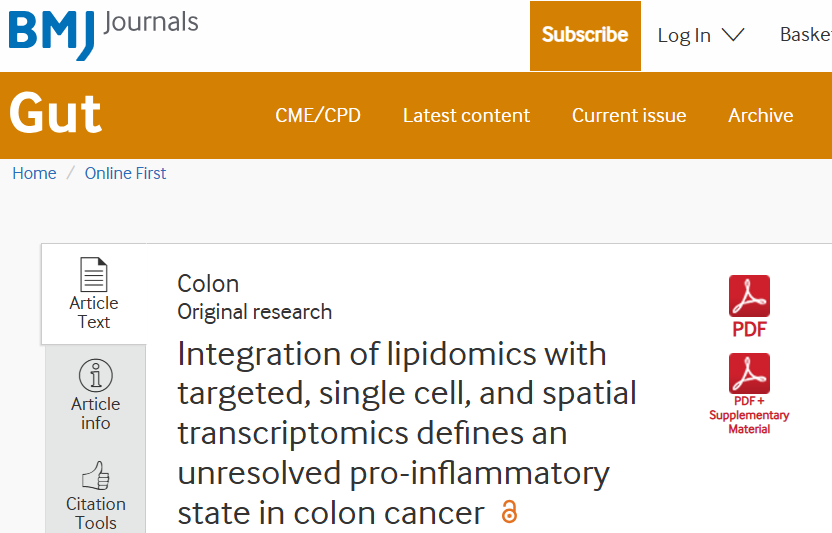TL;DR - a study that measured metabolites (somewhat related to diet) in colorectal tumor tissue vs healthy controls wildly extrapolated their results to suggest that seed oils and ultraprocessed foods drive colorectal cancer risk. very basic, super preclinical research that doesn’t even assess diet and puts forward hypotheses about disease pathophysiology should not be the basis of broad dietary guidance to the public.
For those who didn’t follow my early blogging days (nutrevolve & kcklatt on BlogSpot), I used to spend time deconstructing weekly media nutrition hype. It was somewhat fun and instrumental for me as an early academic researcher/registered dietitian, but after a few years, it became like groundhog day - the same spin, from often similar actors, hyping the same type of immediately actionable ‘nutrition’ research while downplaying the same limitations over and over. The media ecosystem became so oversaturated with hyped up nutrition recommendations that it was impossible for the average consumer to discern what is based on quality science (e.g. new guidelines based on rigorous systematic review processes) vs what is more click-based revenue generation. This reality is still very much the case today.
This week, we got a particularly egregious example that I think is quite telling of all the problems that nutrition science communication faces - problems that will only get worse in the era of MAHA. I think this example is worth bringing back the old study breakdown-style blog post as a way to point out all of the ways the media, researchers, their institutions and scicommers can all come together to degrade expertise and push what is essentially misinformation.
From the media fanfare, including ScienceDaily and ScientificAmerican, you’d think a study was published showing that ultraprocessed foods (UPF) drive colorectal cancer, and that this is in part mediated by UPFs that are made with ‘seed oils’. You’d think that, but you’d be wrong.
The actual study was published in the journal Gut. The study was an observational analysis comparing metabolite and gene expression patterns found in colorectal tumor tissue vs healthy tissues. This is a pretty normal study design, particularly given how hard it is to get human tissues for analyses but it is at the very baseline of understanding what’s happening in a diseased tissue and whether any of it is targetable through a therapy. To be clear: there was nothing experimental in this study. We did not manipulate a variable, randomize to a therapy, etc to understand whether any of the study’s findings are actionable. We are just describing in a cross section of time what the lipids (lipidome) and gene expression (transcriptome) look like in tissue from individuals who already have cancer vs those who don’t - we can’t tell whether any differences observed contributed to cancer development, are driving cancer progression, and/or are just molecular noise resulting from the impact of disease on tissue physiology.
To be clear, this research team is not nutrition scientists - they did not try to understand the patients diets at any time point, and they did not measure validated markers of dietary intake/nutritional exposures. Even if they had, given the cross-sectional nature of the study design, we still couldn’t say much, but there was zero effort made to assess diet to be able to begin to link diet to the underlying tissue metabolite and gene expression. Why is everyone interpreting this as a nutrition study then…? Extrapolations on extrapolations (an all too common phenomena in nutrition).





